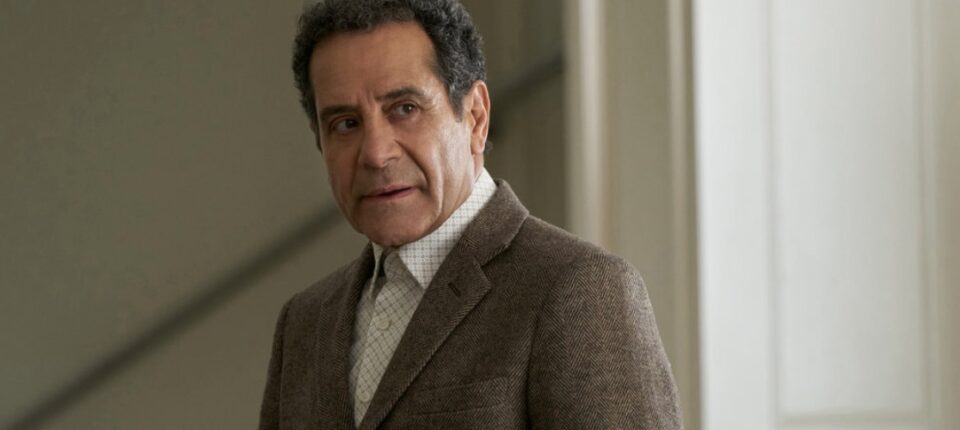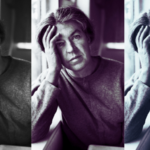It’s been fourteen years since we last saw Adrian Monk. Monk, the anxious, observant detective protagonist of the USA Network series of the same name, which ran eight seasons from 2002 to 2009, was a prime-time treasure, one of the greatest detectives in the annals of TV. Played to gentle, humorous (but never mocking) pathos by the great Tony Shalhoub, Monk is a character defined by the paradox of his life: he lives with a barrage of debilitating obsessions, compulsions, and phobias, and as a result, is so attentive to detail and so aware of his surroundings that he can notice minute evidence where murders or other crimes have taken place, clues which often lead him into the very situations (dirty, messy, disorganized, frantic, violent, and mortal) he would prefer to avoid.
Crucially, Monk’s pathology is related to his status as a widower. The show makes it clear that he had exhibited strong OCD tendencies since childhood, but that these were exacerbated after the murder of his wife, Trudy (Melora Hardin, in flashbacks and dreams). Monk, heartbroken and grieving, experiences his quirks transform into a disability, one so severe that he is terminated from his job as a police detective. But his skills are undeniable, so he begins to consult for the very department that suspended his employment; they can’t function without him.
Monk ended on a small note of triumph: his solving the mystery of Trudy’s death. (Spoilers ahead, but if you’re going to watch the Monk movie then you’ll need them.) Trudy’s murder is the show’s (and the character’s) North Star, the overarching mystery that propels the narrative as well as the motivation Monk needs to wake up each day and live in the world. He will do anything to bring justice to her killer. But his eventual exposure of the killer lead to a surprise: the discovery of Trudy’s long-lost daughter, Molly (Alona Tal in the series and Caitlin McGee in the film). In this way, Monk finds Trudy again—as well as a reason to enjoy his own life. The series finale suggests that some of his compulsions have begun fading to a manageable degree, with this newfound closure.
Mr. Monk’s Last Case, the new film (which is available on Peacock), resumes Monk’s story in real time. It’s 2022-2023. We learn quickly that (as Eleni Theodoropoulos predicted), the pandemic posed devastating challenges for Monk, causing his tics and anxieties to resume. Don’t get me wrong, the man as we see him now is able to cope and function better than before; he no longer needs his assistant Natalie (Traylor Howard), who has moved away, and he even wears varied outfits, more than the same brown uniform he wore in every installment of the series. But he also greatly resembles the Monk we know and love: straightening corners, tapping protruding objects, arranging items in perfect symmetry.
But Mr. Monk’s Last Case, written by series creator Andy Breckman, also opens on hard times; Monk is going through several personal crises which make daily living harder. And even the joy of his stepdaughter Molly’s upcoming wedding cannot fully lift his spirits. Worse, it’s not long before tragedy strikes his inner circle, and he must solve a mystery again, even though he has abjured the practice.
Fortunately, because of Molly’s wedding, Monk’s old comrades are back in town: Natalie, former police Sargent Randy Disher (Jason Gray-Stanford), and the now-retired Police Captain, Leland Stottlemeyer (Ted Levine). Together, this foursome embarks on a difficult and dangerous case. Everyone’s older and leading different lives, but it doesn’t matter; it’s joyful to be back, again.
There are many delights in this new film, some familiar and some new (like Richard Kind playing twins!!!!!!), but it resembles the show more in how it is guided by a sense of tragedy and loss. Monk, the show, is different than many other procedural for its awareness of death. Rather than using the case-of-the-week murders merely as springboards for puzzle-solving, Monk understands the agony caused by death, and especially murder. Shalhoub, who won multiple Emmys and a Golden Globe for his portrayal of the tortured detective, injected such emotion and sincerity into his performance that Monk became a sensitive show about the pain of living, and the absolute horror of being the one to live when a loved one has died. Monk’s half-life was more than a gimmick, more than an eccentricity: Shalhoub created a character so realistic in his despair and mental imprisonment, that it was impossible not to care about him as you would a neighbor or a friend.
In Mr. Monk’s Last Case, Shalhoub easily slips back into this part; watching him, I felt like no time had passed at all. And at the same time, the film’s post-pandemic situation and the new, sad circumstances of the central mystery imbue it with a depth and a sadness even greater than the series’. Trudy (Hardin), still appears to Monk in visions, encouraging him to emotionally release himself from his spirals, but it only does so much.
In this way, this return to the series feels like a more realistic take than what a lot of series revival projects offer, today. Monk has always been a character-based program, even more than it is a mystery series, and this new installment remembers that. This movie is an opportunity to check in and commune with a beloved character, more than anything else. It is a moving, effective film—rather like Monk’s visions of Trudy, it offers us a chance to see someone we love, again.

















